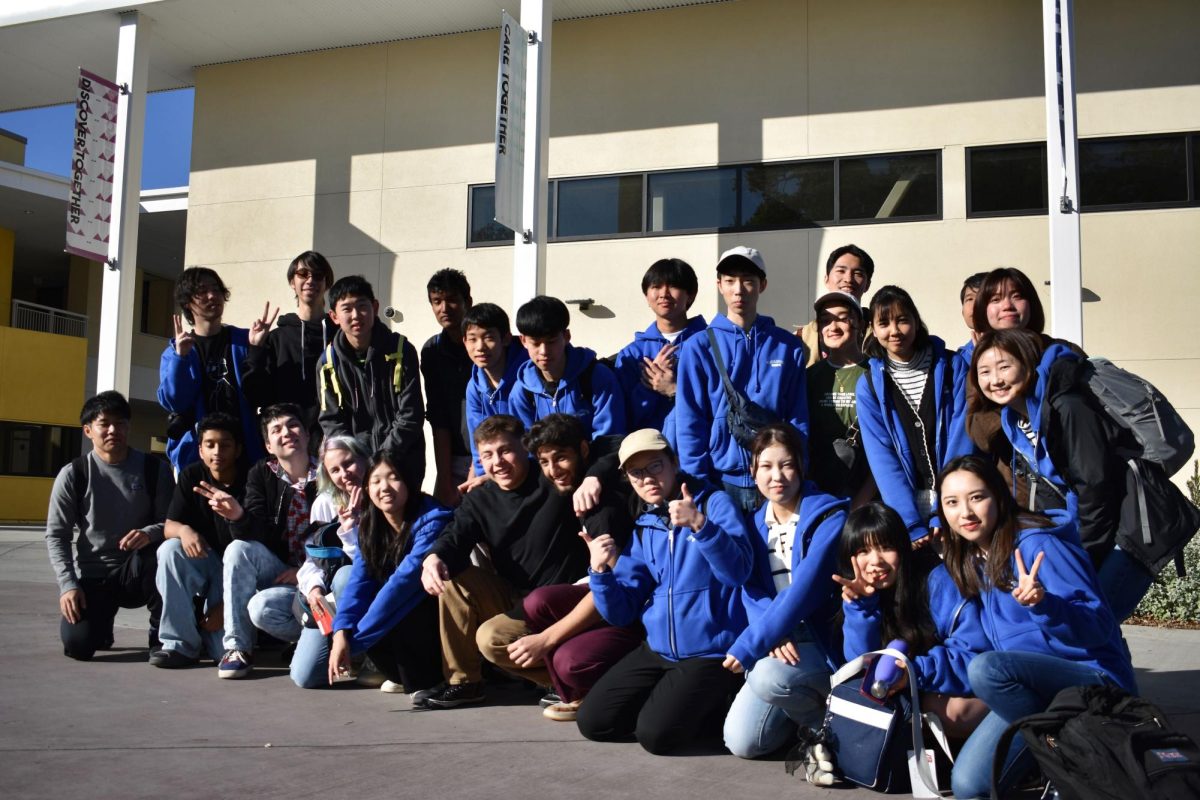On March 17, Senate Constitutional Amendment No. 5 (SCA 5) was withdrawn from the California (CA) State Assembly for revision. Though it was passed in the CA State Senate, the amendment incited controversy over its proposal to delete “specific provisions implemented through the enactment of Proposition 209 that prohibit the State from granting preferential treatment to individuals or groups on the basis of race, sex, color, ethnicity, or national origin, in the operation of public education,” as stated in the bill analysis. SCA 5, which was introduced by Senator Edward Hernandez, cites its intent to restore diversity in public post-secondary educational schools. Nevertheless, the amendment has garnered more than 100,000 signatures through a Change.org petition arguing against its motives.
The most recent online data from the University of California (UC) Office of the President reports that percentages of black, Latino, and Native American students in the UC system have steadily declined within the last two decades, while the number of Asians rose by 12 percent. “Our hope with this new flexibility is that universities will now be able to create programs that address specific achievement caps, whether that’s an underrepresentation of women in [Science Technology Engineering Mathematics] fields, an underrepresentation of Latinos in sciences, or maybe an underrepresentation of men of color in teacher-credentiality program,” Legislative Aide to Senator Hernandez Ronald Berdugo said. “We are envisioning narrowly-tailored programs but we don’t detail exactly what schools should do, and that’s on purpose because every campus has its own achieving challenges. How admissions officers interpret or use the new flexibility, it’s up to them.”
According to Berdugo, all students must still meet qualifications for UC colleges if SCA 5 is enacted. “Our hope is that we’re allowing flexibility so that schools can start creating programs to figure out what can we do to make sure that our campus is more diverse but also so that [underrepresented students] are successful,” he said. “Under Prop. 209, they can make programs, but they can’t specifically target groups, which we think is a problem.”
However, Berdugo does not consider SCA 5 a byway for discrimination. “We actually never needed Prop 209 to prevent discrimination,” he said. “We already have a whole list of both federal and state laws that prevents discrimination based on race, sex, gender, sexual orientation.”
Assistant Principal of Guidance Tom Jacoubowsky understands the backlash to SCA 5, but also sees the proposal’s potential merits. “We’ve had opportunities in our [community] in so many ways that I am for opportunities for other groups who in a sense haven’t had those advantages,” he said. To Jacoubowsky, SCA 5 will not add much more to the subjectivity that already holds a place within the college admission process. “If you have the ability to throw a football 40 yards with incredible accuracy, then what it takes to get into certain colleges is a lot less than what it takes without that ability,” he said. “I know a lot of people get fixated on certain schools but to be successful in life, there are so many other components.”
Jacoubowsky believes that perpetuation is the reason behind increasing disproportionality rates within California’s public education system. “People who have the wealth and the means have the opportunity to go to the good schools, have the opportunity to hire tutors for their kids, which helps inflate, say, their SAT scores, which helps them get into good colleges,” Jacoubowsky said. “So kids who are privileged keep moving on and kids who maybe have not had those opportunities kind of lag farther and farther behind.” However, if SCA 5 is implemented, Jacoubowsky hopes that colleges continue giving underrepresented students support.
Sophomore Cristobal Gonzalez believes that SCA 5 is a significant step toward maintaining diversity in the public education system. “What’s extremely important for a good college environment is diversity and diversity of opinions and ideas,” he said. Though Gonzalez acknowledges the negative reactions to SCA 5, he also notes the idea of entitlement to college as hindering judgement. “You have to think that these [underrepresented] students aren’t taking someone’s spots and that no one is entitled to a spot in college,” he said.
According to Gonzalez, the number of minority applications to UC colleges and California State Universities has dropped due to certain cultural beliefs. “There’s a culture in this community full of minorities where children and high schools look at the people around them and they just don’t think of college as a tangible idea,” he said. “They don’t know people who have gone to college, they don’t know the process, they’d much rather go straight to the workforce, so I think a lot of it is just that they don’t see that path of coming to college as a possibility.”
Junior Pratyusha Meka understands the intention behind SCA 5 but points out how it could be easily used for the wrong reasons. “It’s going against everything written in our Constitution about giving rights to people so they can pursue education,” she said. “If they want, they can set aside a certain part of the student body to be of the minority and allow the rest to be open admissions. Meka believes that SCA 5 would affect much of Gunn’s population if passed. “A majority of people at Gunn are intelligent and have a promising future, but if they are not accepting people based on gender or race, then I feel like this could be a huge disadvantage because a majority of our student body is Asian,” she said.
Alternatives to SCA 5 can be made so that the emphasis is not on race or gender but on socioeconomic status, Meka says. “The best thing the U.S. can do is provide more seats to students at a more affordable price; then if you are of this economic status, you can compete with other kids of that same economic status to get those seats,” she said. “If you work hard enough and you put a goal and you meet that goal, your education should not be limited just because of your race or gender because you cannot control that.”’
While SCA 5 may not be intended to target race, sophomore Annie Vesey notes that the amendment allows categorization of race. “By categorizing people by race and accepting based on race, then that is thinking and putting race into it,” she said. “Race should not be a factor in college acceptance because there are other factors they can use to diversify their campus that still supports a person with non-qualifying grades, such as work ethic and personality represented in interviews.” Nonetheless, Vesey understands the need for diverse campuses. “The reason schools aren’t diverse is because everyone doesn’t receive the same secondary education that prepares them for the college level,” Vesey said. “If everyone is put on the same playing field, schools will naturally diversify and schools won’t have to turn away someone who is more qualified.” Freshman Duchess Dankwah also agrees with this notion. “If you want more diverse colleges, you have to start in communities first because the only reason people get into colleges is because they all worked hard, but it’s not your race that determines how hard you’re going to work,” she said. “That’s yours to determine.”
According to Dankwah, passing this amendment could lead to more racism. “I think [SCA 5] just brings the idea of a superior race,” she said. “Someone could come up to you and say, ‘Oh, you obviously know you got into that college just because of your race.’” Furthermore, preferential treatment based on race or gender could cause more stress. “You shouldn’t have the fear of not getting into college because of your race,” Dankwah said. “You should have the fear of maybe not doing so well on the SAT and etc.”
Senior Kirsten Wei says that instead of discriminating against race or gender, the government should give all public school students equal resources needed to meet qualifications for college. “Education at some K-12 schools is better than other schools even though they’re all public schools, and people deserve to get equal education,” Wei said. While Wei acknowledges that SCA 5 may assist some students, its ideals seem unfair to most. “It should not be based on something you can’t choose,” she said. “You can choose to push yourself, but you can’t choose your ethnicity or sex.”
English teacher Mark Hernandez, unrelated to Senator Hernandez, predicts rapid complications if SCA 5 is enacted. “That gets dicey, obviously, and though there are good arguments on either side, it gets messy real fast,” he said. “I certainly don’t think it will be a magic bullet for whatever ill they’re trying to cure.” Mark Hernandez believes socioeconomic status would be more relevant for affirmative action. “My guess is that socioeconomic status has more to do with performance than race or gender,” he said. “That makes a big difference, when you’ve got people who have fewer means, that means, fewer tutors, fewer opportunities, etc., so I think it matters in the long run.”
Currently, SCA 5 is undergoing a re-evaluation. Through the process, Senator Hernandez hopes to clarify misinformation about the amendment. “The point is to address concerns opponents have, which might mean amending or even rewriting the proposal,” he said in an interview with Pasadena Star News. If the revised amendment is passed by the legislature, it could be placed on the ballot again as early as 2016. However, Mark Hernandez does not believe the SCA 5 will become law. “The more dire the predictions, the stronger the fight,” he said. “There’s gonna be a constitutional battle for sure.”









